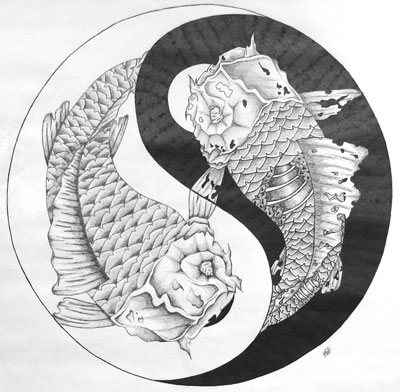All Nonfiction
- Bullying
- Books
- Academic
- Author Interviews
- Celebrity interviews
- College Articles
- College Essays
- Educator of the Year
- Heroes
- Interviews
- Memoir
- Personal Experience
- Sports
- Travel & Culture
All Opinions
- Bullying
- Current Events / Politics
- Discrimination
- Drugs / Alcohol / Smoking
- Entertainment / Celebrities
- Environment
- Love / Relationships
- Movies / Music / TV
- Pop Culture / Trends
- School / College
- Social Issues / Civics
- Spirituality / Religion
- Sports / Hobbies
All Hot Topics
- Bullying
- Community Service
- Environment
- Health
- Letters to the Editor
- Pride & Prejudice
- What Matters
- Back
Summer Guide
- Program Links
- Program Reviews
- Back
College Guide
- College Links
- College Reviews
- College Essays
- College Articles
- Back
Ultimately, We All Die
As we are experiencing the drudge of our daily lives, we are faced with wondering whether we are able to change the course of this tediousness or the latter, where we are stuck with accepting our fate. Despite that our fate is too complex to be certain about, there is a correlation between our final destination in life’s journey and the decisions we make; we are all destined to achieve our self-created fate, but we must exercise our ability of free will in order to arrive there.
At a young age, we learn to acknowledge our interests, which begin to vary as we grow. The years fly by, and suddenly we find ourselves committed to one career field; we might even consider our dream career our fate, but in order to successfully pursue this, we cannot sit back and expect this career to magically come to us, just because we simply believe that it is in our destiny. According to Malcolm Gladwell’s Outliers, skill alone does not determine our success; effort and luck are also required, which means that relying solely on our beliefs is an illogical thought process towards our future prospects. I can speak for the bulk of aspiring musicians out there; just hoping that you will accelerate to groundbreaking success without trying to publicize yourself gets you nowhere. If one feels concrete towards what they yearn to do for a living, they will not hesitate to persist through hardships in the way of their goals; but if one isn’t willing to take the treacherous road to success, then it’s proven that their original outlook isn’t their ultimate divinity. Such a statement leads to this conclusion, where “if one accepts that a person's actions are freely chosen, one cannot then argue that in some cases they are determined by outside forces” (Hawking); you are the only person in the way of achieving your fate.
Another component that plays into our fate is the ability to control our own emotions; we can either allow feelings to destroy us or disregard them, which reflects in the kind of person we eventually transform to be. Why should one take others’ opinions so seriously, when the only criticism they should take into account is their own? Letting negative influences surround you only leads to mental and emotional calamity; if anything, it would be best to “ignore the awful things, and concentrate on the good ones,” as stated in Kurt Vonnegut’s Slaughterhouse Five. Humans can either become optimists or pessimists based on the environment they are in, which affects their decisions in the future. Ignorance is truly bliss; a “care for a myriad instances and applications” (Thoreau) only clutters our potential instead of having a positive outlook towards life. If everyone was an optimist, that would cause us to have more confidence to take more chances at being successful.
We also have the possibility of life being completely determined and the possibility of fate being too complicated to be determined; do we accept Vonnegut’s theory of “so it goes,” where there is nothing that we can do to change our fate, or “adopt the effective theory that one has free will and that one is responsible for one’s actions” (Hawking)? Based on Hawking’s perspective, it is impossible to determine our fate because humans are unpredictable, therefore it doesn’t matter whether fate exists or not. However, if we do take advantage of the fact that we can make our own choices, it will not only better ourselves as a society because we’re taking responsibility for our decisions, but it will gradually compose our fate and solidify where we are heading in life. Ultimately, we all die. According to Vonnegut, death is insignificant; what really matters is how we choose to live our lives in a way which will benefit us and lead us to the fate we've created for ourselves.

Similar Articles
JOIN THE DISCUSSION
This article has 0 comments.
